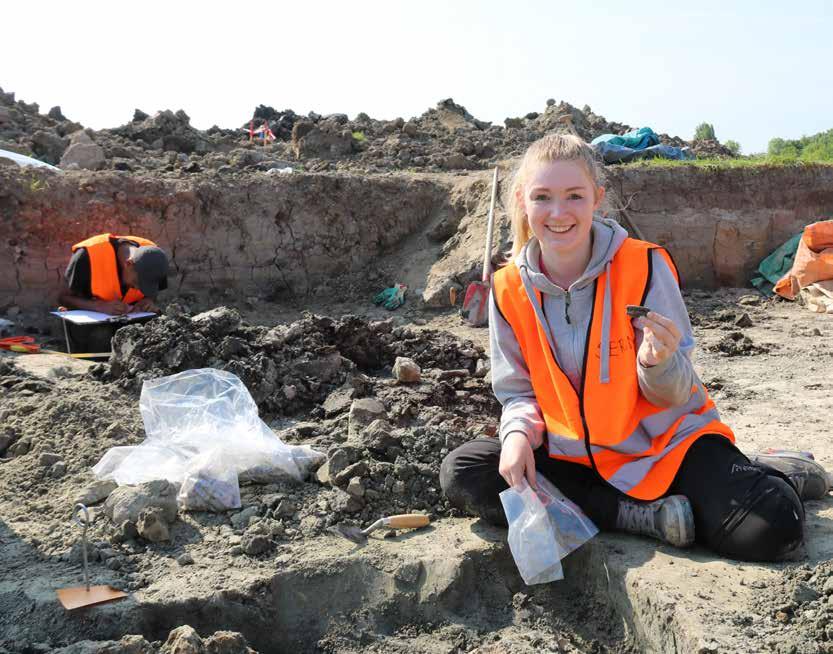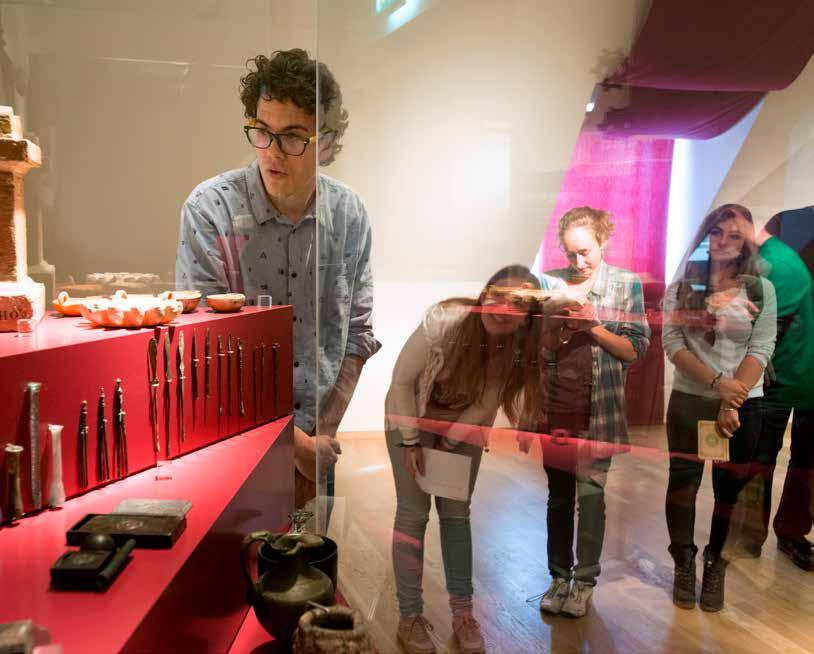
3 minute read
Archaeology
from About us 2020
ARCHAEOLOGY Where past and present meet
At the Faculty of Archaeology, we research the development of human societies worldwide, from the earliest beginnings to the modern era. We also study the heritage that can teach us about the long history of humankind as well as about society today.

Archaeologists have access to effective methods that both explain the past and make it relevant to the present. Archaeology is an interdisciplinary field that uses approaches and theories from the social sciences, humanities and natural sciences, thus giving rise to new insights. Alongside research, the main focus of the Faculty is to train students as archaeologists and heritage experts. Research and teaching go hand-in-hand: every lecturer is an experienced researcher and every researcher is an experienced lecturer.
RESEARCH With a staff of over 140, the Faculty of Archaeology is the largest academic centre of Archaeology in continental Europe. The Faculty’s academic staff conduct research in three departments: •Archaeological Heritage •Archaeological Sciences •World Archaeology Our research covers large parts of the world and nearly all eras. We study the complexity of the human past from interdisciplinary perspectives, and ask research questions that can help resolve the challenges facing society today. Our research gives rise to exciting partnerships within and well beyond the Faculty itself, all within an inspiring research-driven setting.
Graduate School The Graduate School of Archaeology offers extensive PhD programmes on the excavation, analysis and interpretation of material remains from the human past.
TEACHING Bachelor’s programme in Archaeology Our bachelor’s programme provides a broad introduction to archaeology, allowing students to delve into the role of heritage in society. This English-taught bachelor’s programme prepares our students for an international career. More-ambitious students can follow our Crossing Borders in World Archaeology honours programme. Master’s programmes in Archaeology Our specialised master’s programmes (MA, MSc or Research Master’s) in Archaeology provide a solid basis for an international career in archaeology, heritage management, heritage policy or the museum world.
Fieldwork The Faculty of Archaeology runs fieldwork projects all over the world. Students can participate in excavations and projects not only in the Netherlands but also in other countries such as France, Cyprus, Oman or the Caribbean.
FACTS AND FIGURES 2019
535 students: 336 bachelor’s students and 199 master’s students
141 staff (100 academic and 41 non-academic)
Institute: • Archaeology
19 doctorates
The Faculty is a world leader and is in the top 10 of the QS World University Rankings (discipline).
BACHELOR’S PROGRAMMES • BA in Archaeology
MASTER’S PROGRAMMES • MA/MSc in Archaeology • MSc in Archaeology (research)
Archaeology Today The Open Day at the Faculty of Archaeology in autumn 2019 was a field day for archaeology fans. The full breadth of the discipline was covered in workshops, talks, activities for children and a pub quiz.

Valkenburg Field School Serina, an exchange student from Norway, poses at an excavation in Valkenburg, a village close to Leiden. The students from the bachelor’s specialisation in World Archaeology gain a significant part of their practical experience at this field school.


Desert flowers What can we learn from 2,000-year-old irrigation methods? Dr Mark Driessen’s Udhruh project is exploring the hinterland of the archaeological city of Petra in Jordan. In antiquity, an ingenious irrigation system made agriculture possible in this desert area. By applying archaeological knowledge, old irrigation channels can be used to make the desert flourish once more. Every year, many of our students do fieldwork, including Nils Schuurmans who can be seen on the photo here.

World’s first endowed chair in archaeology The year 1818 marked a major breakthrough in the serious study of human cultural history: in Leiden, Caspar Reuvens was appointed as the world’s first professor of archaeology. He also founded the National Museum of Antiquities (see photo). With its rich history, this is one of the leading museums of antiquity in the world. The close ties between the Faculty of Archaeology and the Museum were strengthened when Professor Miguel John Versluys was appointed to the Museum’s Board of Governors.










